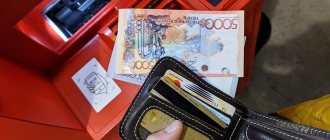Fraud schemes with plastic cards: when transferring money to a card, through a mobile bank
If we talk about fraud with plastic cards in its everyday concept, then the methods of fraud with bank cards are very diverse. For example:
- fraud when transferring money to a card - the criminal deceives the card number and CVV code - supposedly to transfer payment or to return an erroneous transfer, and, accordingly, gets the opportunity to pay with someone else’s card on the Internet;
- fraud with bank cards through a mobile bank - the fraudster begins to connect the mobile bank to someone else’s card from his device, and obtains the connection code from the cardholder who received the SMS; this allows the fraudster to quickly withdraw funds from all accounts of the cardholder or obtain a credit card and use it;
- by adding a special device to ATMs (real or fake) that reads card data; this type has its own name - skimming (based on the data received, a fake payment card is made, with which money is withdrawn from the account);
- by installing overlays on ATMs that capture the card, or a “Lebanese loop” (special devices or just a piece of hard film that prevent the card from getting into the ATM; fraudsters spy on the PIN code and, after waiting for the victim to go to the bank, take out the card and withdraw it from it money).
Banks and law enforcement agencies are not without success in combating the listed crimes, so their prevalence in Russia is constantly changing depending on factors such as banks strengthening the protection of cards and ATMs and the technical development of fraudsters in response.
Whether the bank is obliged to return money when it is written off from a bank card or via Internet banking without the client’s consent, find out in ConsultantPlus. If you do not have access to the K+ system, get a trial demo access for free.
Fraud with bank card numbers: technical ways to combat it
Of great importance for the fight against fraudsters who commit thefts from payment cards was the change on March 16, 2015 “Regulations on requirements for ensuring the protection of information when making money transfers...”, approved. Bank of Russia 06/09/2012 No. 382-P. These changes actually eliminated the use of payment cards on which information is stored only on a magnetic stripe: according to clause 2.19 of the Regulations, from 07/01/2015 it is possible to issue debit or credit cards equipped with both a microprocessor and a magnetic stripe. This has made it more difficult to counterfeit credit cards based on skimming information.
Then many banks (Sberbank, Gazprombank, VTB, Bank of Moscow, etc.) and international payment systems (Visa, MasterCard) introduced protection against unauthorized payments by the card owner on the Internet. Previously, a fraud scheme with bank cards was used, in which unauthorized persons paid for purchases on the Internet in those stores that required a minimum of payment details (only the card number, number and name of the owner, number and CVV/CVC code). 3D-Secure technology counteracts this method of theft - it provides for payment to be made only after entering the code received at the mobile phone number linked to the card in the online store.
IMPORTANT! Fraud with a bank card number on the Internet does not fall under Art. 159.3 of the Criminal Code of the Russian Federation, and under Art. 159.6 of the Criminal Code of the Russian Federation.
Situations in which attempted fraud is criminally punishable
Attempted fraud is criminally punishable only if the purpose of the crime was property on a large or especially large scale. This is stated in paragraph 2, art. 30 of the Criminal Code of the Russian Federation.
| Classification of the amount of theft | Size of property in monetary terms |
| large | from 250 thousand to 1 million rubles |
| especially large | over 1 million rubles |
An example of attempted fraud is given in the video below:
Fraud with plastic cards in Russia - legal ways to combat it
Special types of fraud appeared in the Criminal Code of the Russian Federation on December 10, 2012 (see Law No. 207-FZ dated November 29, 2012 on amendments to the Criminal Code and a number of other legislative acts), including payment card fraud.
Previously, actions that now fall under qualified offenses were considered fraud under Art. 159 of the Criminal Code of the Russian Federation. An important milestone in the qualification of fraud, including with payment cards, was the Resolution of the Plenum of the Supreme Court of the Russian Federation dated November 30, 2017 No. 48.
The consequence of the emergence of new special offenses of fraud for citizens already convicted or under investigation was the reclassification of their actions (see, for example, Resolution of the Presidium of the Samara Regional Court dated May 29, 2014 No. 44u-86/2014). The fact is that new types of fraud were considered by the legislator to be not so socially dangerous - the maximum penalty for committing them is lower than for fraud under Art. 159 of the Criminal Code of the Russian Federation (4 months of arrest versus 2 years of imprisonment for non-aggravated acts).
Note! If you suspect that fraudulent transactions have been committed, you must contact law enforcement agencies and write a statement about the commission of a crime.
You can make such a statement for free by clicking on the picture below.
How to return money written off from an individual’s bank card without his consent? The answer to this question is in ConsultantPlus. Get trial demo access to the K+ system and access the material for free.
Composition of the crime for fraud with payment cards
Regarding the subjective side of fraud with plastic cards, we note that this is an intentional crime (direct intent). Moreover, despite the fact that the theft does not occur “from the pocket” of the victim, the criminal expects to satisfy his self-interest precisely at the expense of the card owner, and not the bank through which the funds are stolen.
The subject of this crime is a person over 16 years of age.
The object is, as in other parts of Chapter 21 of the Criminal Code of the Russian Federation, social relations in the field of property rights. There is no consensus on the subject of the crime - in this case, the following are considered as such:
- cash;
- the cardholder's rights to stolen funds.
Perhaps the subject differs depending on what purpose the criminal pursued by misleading an employee of a bank or trade organization: for example, obtaining a loan for salary card holders clearly indicates that the subject was the rights of the real card owner.
IMPORTANT! The card can only be a payment card - debit or credit - but not a fuel or other discount program card that does not contain funds for theft.
The objective side is specific in comparison with other types of fraud - it is not the owner of the property who is misled by deception or abuse of trust, as usually happens in the “classic” fraud of Art. 159 of the Criminal Code of the Russian Federation, and an employee of a bank or trade organization. The composition is material, that is, the theft is recognized as committed after the criminal receives money or other property benefits and the fraudster has the opportunity to dispose of the stolen property.
What is fraud
In the legislation of the Russian Federation there is an article of the Criminal Code for fraud - 159. The concept of fraud in criminal law is defined as the theft or acquisition of the right to someone else's property through abuse of trust or deception.
Thus, a fraudster is someone who fraudulently obtained someone else's property. Article 159 applies only if the victim is a person with legal capacity. If the property of an incompetent citizen is taken by deception, the crime is classified as theft.
Fraud in the Criminal Code of the Russian Federation is divided into two types:
- active;
- passive.
Active deception is the deliberate communication of deliberately false information, omission of true facts, or actions that deliberately mislead the victim. For example, when a fraudster offers a counterfeit product.
Passive deception is the omission of legally significant circumstances, as a result of which the victim is mistaken regarding the existence of a legal right to transfer property to the fraudster. For example, when the accused is silent about the shortcomings of the transferred goods.
It is worth noting that if deception is not a method of taking possession of property, but only a means to facilitate access to it, the crime is not qualified under Article 159.
Breach of trust refers to the use of a trust relationship between a property owner and a fraudster for personal gain. Trust can be determined both by family or friendly relations, and by the official position of the accused.
Please note that theft of property due to deception is considered fraud in the Criminal Code of the Russian Federation only if the owner himself transferred the item or money to the culprit. Otherwise, the crime is classified under another article.
Distinguishing fraud with plastic cards and related frauds
It is obvious that not every type of fraud perceived by citizens as fraud using payment cards is recognized as such by criminal law. Qualify under special art. 159.3 of the Criminal Code of the Russian Federation, for example:
- skimming, if the resulting fake card is used to purchase goods, obtain a credit card from a bank (Article 159.1 of the Criminal Code of the Russian Federation in the latter case is not applicable, since for fraud in the field of lending, the presence of a borrower is fundamental);
- making offline purchases using a stolen card;
- obtaining a payment card using forged documents (see Certificate-summarizing the study of judicial practice of consideration by the courts of the Samara region of criminal cases of crimes under Articles 159.1 - 159.6 of the Criminal Code of the Russian Federation).
The production and sale of counterfeit payment cards constitutes an independent crime - Art. 187 of the Criminal Code of the Russian Federation. In the case where a person produced and then used a bank card in a trade organization, what he did is qualified under the totality of Art. 187 and 159.3 of the Criminal Code of the Russian Federation.
IMPORTANT! The fundamental sign of a crime under Art. 159.3 of the Criminal Code of the Russian Federation is misleading an employee of a bank or retail outlet - for example, when in order to issue a credit card to the supposed holder of a salary card, the fraudster presents a fake passport (see paragraph 17 of the resolution of the Plenum of the Supreme Court of the Russian Federation dated November 30, 2017 No. 48). When a criminal withdraws cash using a counterfeit or stolen card from an ATM, this does not constitute fraud, since there is no person being deceived using the plastic card. Such a crime is theft (Article 158 of the Criminal Code of the Russian Federation).
When does one qualify?
In order to recognize the actions of criminals as attempted fraud, it is enough that their actions were suspended at the stage of taking possession of someone else’s property, even before they have the opportunity to dispose of it.
Criminal actions of attackers must meet three criteria::
- The purpose of criminal acts or omissions is to seize the victim’s property.
- Actions or inactions must certainly be intentional and not accidental.
- The crime remained uncommitted due to circumstances beyond the control of the offender.
In situations where a person intentionally renounces a criminal act, there is no corpus delicti and they cannot be regarded as an attempt to commit fraudulent acts.
Common Questions
What to do if fraudsters received your card details and debited the money?
If fraudsters were somehow able to gain access to the card and debited funds from it, then the victim should:
- Contact the bank and block the card.
- Write a statement at the bank office stating that the specified operation was not carried out by the victim.
- Write a statement to the police about the theft of funds from the card.
What should I do if they call from the bank and ask for card details and access code?
Under no circumstances disclose your card details to anyone, as well as the CVC code located on the back of the card. Bank representatives know who the card is registered to and see the client’s information.
Fraudsters also use SMS messages with a message that the card is blocked. The client calls back to the specified number, and the scammers report that there was a failure on the server and ask for the card number and PIN code that was sent to the victim’s phone. Once this information is shared, scammers can control the victim's account.
What is phishing?
Phishing is the theft of card data by creating mirror sites. That is, scammers create a mirror site exactly like the original. The difference may be one letter of the domain name. Next, the client enters personal data, pays for the purchase and is left without a service and without money. As a rule, scammers fake the websites of airlines, insurance companies and banks themselves.
If you have logged into online banking and have not received an SMS about logging in, we recommend that you immediately contact the bank and block your account. You can unblock it by contacting the bank with your passport and a mandatory password change.
Sources: Resolution of the Plenum of the Supreme Court of the Russian Federation dated November 30, 2017 No. 48
You can find more complete information on the topic in ConsultantPlus. Free trial access to the system for 2 days.




